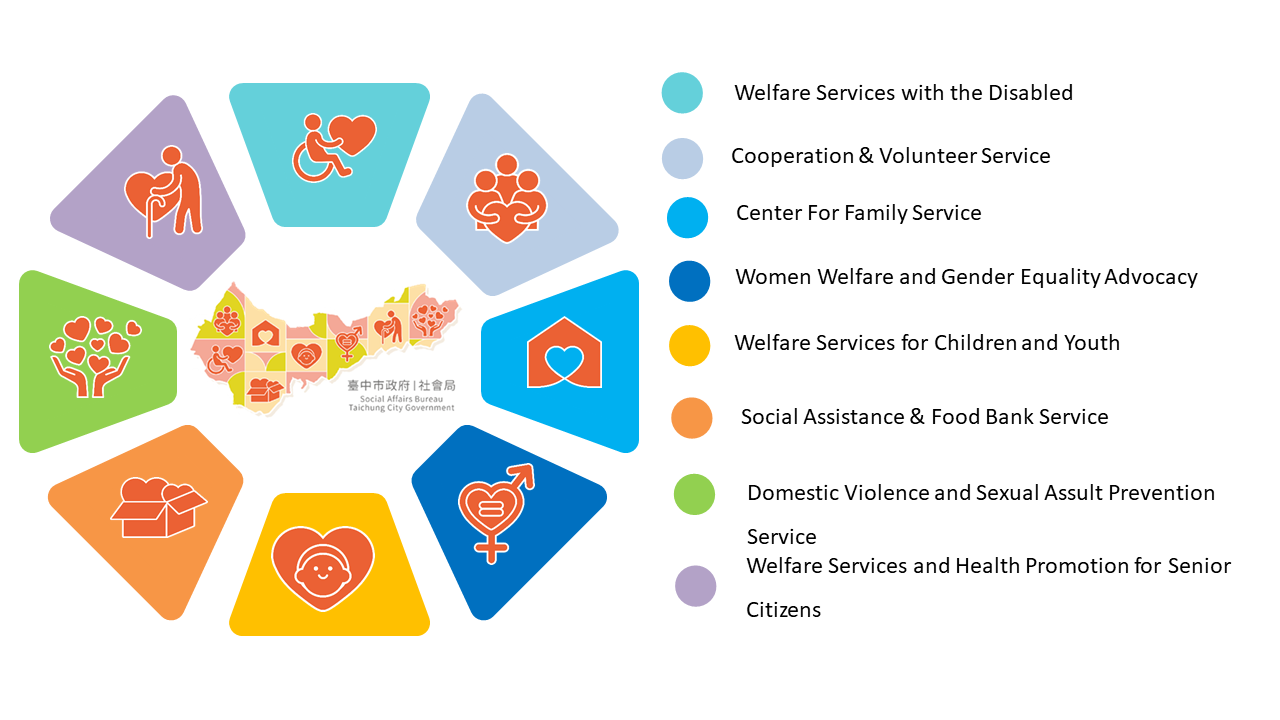
With the changing population structure and labor market, a multitude of complex problems have arisen in the modern society, and the associated welfare needs are also becoming more diverse. How to utilize limited budget in conjunction with social resources to cater to people’s needs is paramount for this bureau. Social welfare policy based on the concept of “social investment” is an excellent solution for various issues that exist in the contemporary society, particularly for developing basic social services, creating multiple service models and proposing various care support services. Furthermore, the aim is also to increase employment and increase government tax revenue in order to achieve the sustainable development of different social welfare measures.
For instance, policies such as “One stop creche and babysitting” and “Home postnatal care service” combine public and private sector resources to alleviate the parents’ burden while offering welfare services so that women can engage in the employment market. Moreover, the policies also facilitate development in the care industry, and they have already demonstrated significant results, with the parents indicating high degrees of satisfaction. In addition, diverse, uninterrupted services are planned according to the senior citizens’ health status, where government, community and medical resources are integrated to devise the “One stop elderly care” policy, encompassing preventive care for healthy senior citizens and elderly care for incapacitated senior citizens. It is hoped that a complete care system will be established to delay the incapacity among the senior citizens via the concept of health promotion and reinvigoration, so that they can enjoy retired life and materialize the philosophy of aging in place.
Furthermore, social changes also affect the existing functions of a family. Since 2013, numerous family welfare service centers have been established throughout the city, and 14 local community centers have been augmented to integrate various resources and services, with the ultimate aim of enabling social workers to proactively assist every family in need. Also, the spirit of “Anti food waste and bridge the deficit-surplus gap” is applied to create the city’s hunger-free network, where private organizations, religious groups and public markets are brought together to form brick and mortar food banks, distribution stations, alliance stores and food ingredients exchange platforms, thereby taking care of disadvantaged families and families in need of assistance in the city.
In order to allow frontline service providers to be informed of the aforementioned welfare services and provide the public with immediate consultation service, the bureau has integrated social, health and education resources to publish this manual with the goal of improving service quality and reinforcing professional skills, in turn realizing the city’s vision of “People-oriented, livable city and living capital”.

 Facebook
Facebook
 Twitter
Twitter
 LINE
LINE